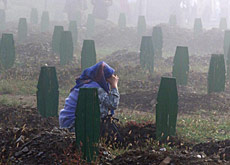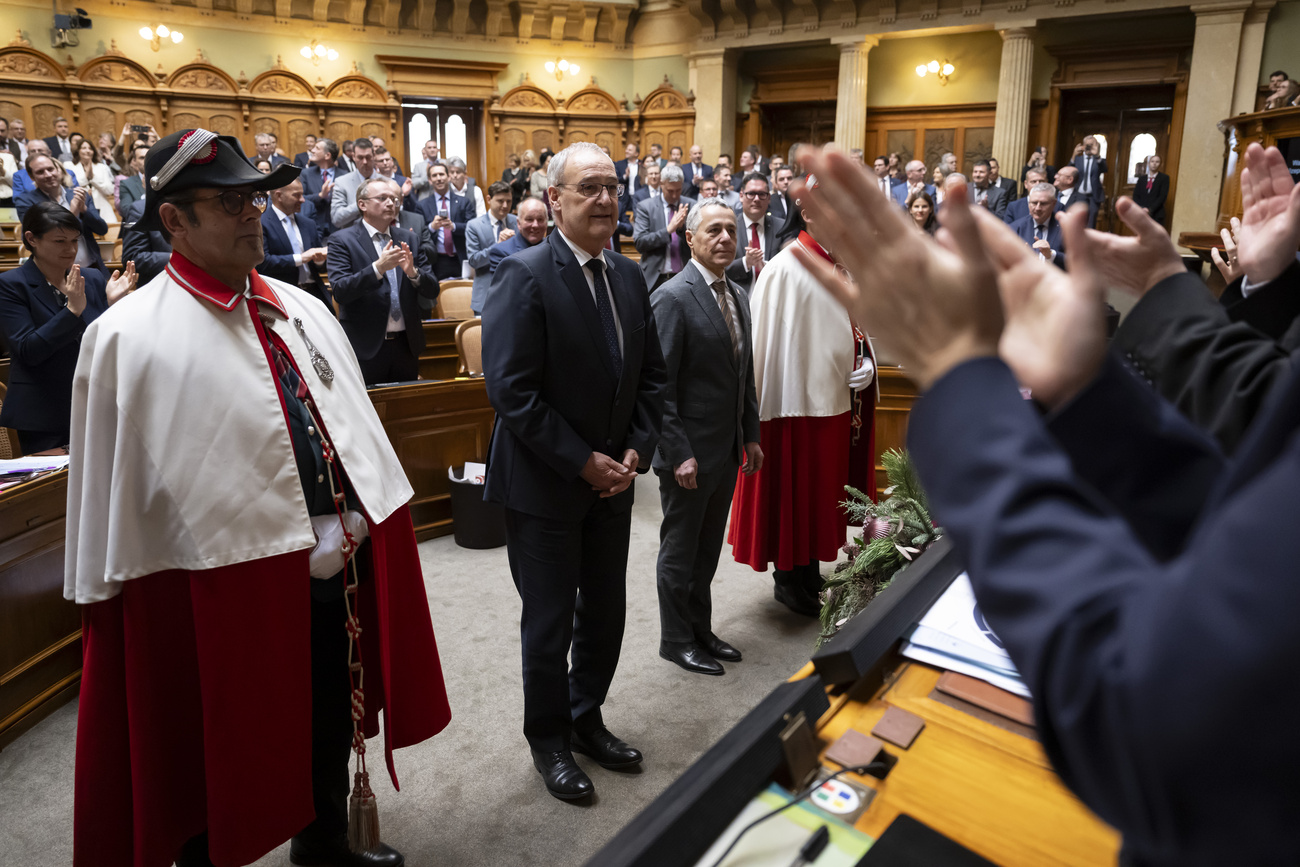
Survivors return to face ghosts of Srebrenica

Around 50 survivors of the Srebrenica massacre living in Switzerland are attending memorial ceremonies to mark the tenth anniversary of the atrocity.
Up to 8,000 Muslim men and boys were slaughtered after Bosnian Serb troops overran the small town in eastern Bosnia, which the United Nations had declared a “safe area”.
About 50,000 dignitaries and relatives of the dead are expected to gather at the Potocari memorial centre near Srebrenica to commemorate the massacre and bury hundreds more bodies found in mass graves in the surrounding hills.
The genocide was the bloodiest chapter of the 1992-95 Bosnian war. Former Bosnian Serb leader Radovan Karadzic and ex-army commander Ratko Mladic have been indicted for their roles in the massacre by the International Criminal Tribunal for the former Yugoslavia (ICTY), but both of them remain at large.
Fahrudin Salihovic, president of the Drina-Srebrenica Survivors’ Association and former mayor of the town, told swissinfo that never a day passed without him thinking about the events of July 1995.
“It is impossible for me to forget that over five days young boys and old men were slaughtered in the most barbaric ways,” said Salihovic, who lives in Geneva.
“The memories are always there, especially when we approach the anniversary of the massacre.”
Salihovic, who cannot attend the commemorations because his residency permit does not allow him to leave Switzerland, said he was deeply disappointed that he could not be in Srebrenica alongside other survivors.
Grieving process
Marc Walther, a Lausanne-based psychiatrist who has worked with Srebrenica survivors, believes Monday’s ceremony in Bosnia-Herzegovina will be an important step in the grieving process.
He says it will be the first time many have been back since the massacre, which still “hangs heavily over all of them”.
“Many of them want to face the past and bear testimony in front of the world to what happened; others are going there to bury – symbolically or physically – the people they have lost,” Walther told swissinfo.
Switzerland’s Carla Del Ponte, chief prosecutor at the ICTY, will also be missing from the commemoration ceremony.
Last week her spokeswoman confirmed that Del Ponte would not attend “as long as Karadzic and Mladic are on the run”. The UN’s chief prosecutor has repeatedly expressed her frustration at the failure of the relevant authorities to bring the pair to justice.
“Shame and disgrace”
“Ms Del Ponte cannot face the victims when Karadzic and Mladic are still allowed to enjoy impunity ten years after they were first indicted by the ICTY,” said spokeswoman Florence Hartmann.
“It is a disgrace and a shame that the two persons primarily responsible for the Srebrenica genocide have not been brought to justice.”
Salihovic echoed this view, saying he hoped that Mladic, Karadzic and “other alleged war criminals” would one day appear before the court in The Hague.
On the eve of the anniversary, the Swiss-run International Committee of the Red Cross (ICRC) called for renewed efforts to establish the fate of more than 14,500 people still unaccounted for as a result of the conflict.
The figure includes more than 5,500 people reported missing following the events in Srebrenica and the surrounding area.
“The families’ right to know the fate of their missing relatives – as recognised by international humanitarian law – must be upheld and respected,” the ICRC said in a statement.
swissinfo, Adam Beaumont in Geneva
July 11, 1995: Bosnian Serbs overrun a small force of Dutch UN peacekeepers and take control of Srebrenica where tens of thousands of civilians have taken shelter.
July 12: the Serbs begin separating males aged 12 to 65 from the rest of the population. Several thousand other men, fighters as well as civilians, flee the enclave along the so-called “road of death”.
July 13: The first killings of unarmed Muslims take place. Many of the victims are buried in mass graves.
From 1992 to 1995, Bosnia-Herzegovina was the scene of an ethnic war between Muslims, Croats and Serbs in which an estimated 250,000 people died.
Around two million people were displaced by the conflict, including over 10,000 refugees who fled to Switzerland.
Several parliamentarians have called on the Swiss government to halt the forced repatriation of rejected asylum-seekers to Bosnia.
The southeast European country is a Swiss foreign policy priority, due to its post-war problems.

In compliance with the JTI standards
More: SWI swissinfo.ch certified by the Journalism Trust Initiative































You can find an overview of ongoing debates with our journalists here . Please join us!
If you want to start a conversation about a topic raised in this article or want to report factual errors, email us at english@swissinfo.ch.